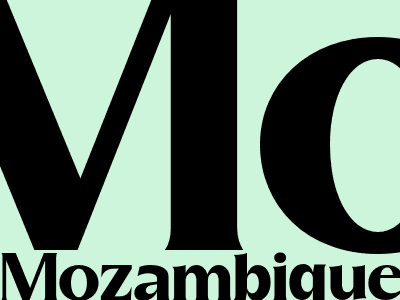
Mozambique: Post-Election Protests Violently Repressed
Hundreds of protesters have been arrested and at least one killed in Mozambique after police used live ammunition to disperse post-election protests.
The violence erupted after opposition supporters took to the streets to denounce alleged fraud in the recent presidential election, which was won by incumbent Filipe Nyusi.
The protests began peacefully, but quickly turned violent when police fired tear gas and live ammunition at the protesters. Several people were injured, and at least one person was killed.
The government has accused the opposition of inciting violence, but the opposition has denied these claims. The opposition has also accused the government of manipulating the election results.
The international community has condemned the violence and called for an independent investigation. The United States has called on the government to "exercise restraint" and to "respect the right of Mozambicans to peacefully express their political views."
In-depth Analysis of the Mozambican Post-Election Protests
The post-election protests in Mozambique are a complex issue with a long history. To understand the current situation, it is important to look at the historical context of elections in Mozambique.Background: A History of Electoral Fraud in Mozambique
Mozambique has a history of electoral fraud, dating back to the country's first multi-party elections in 1994. In the 1999 elections, the ruling Frelimo party was accused of manipulating the results to ensure its victory.
In the 2009 elections, the opposition Renamo party alleged that the ruling party had rigged the vote. The opposition boycotted the 2014 elections, alleging that the electoral process was not free and fair.
The 2019 Elections: Allegations of Fraud and Violence
The 2019 elections were held on October 15th. The ruling Frelimo party won the election, but the opposition Renamo party alleged that the vote was rigged. The opposition claimed that there were irregularities in the voter registration process and that the ruling party had used state resources to campaign.
The opposition has also alleged that the police used excessive force to disperse the protests. The police have denied these claims, but there is evidence to support the opposition's allegations.
The International Response to the Protests
The international community has condemned the violence and called for an independent investigation. The United States has called on the government to "exercise restraint" and to "respect the right of Mozambicans to peacefully express their political views."
The European Union has also called for an independent investigation and has threatened to impose sanctions on Mozambique if the government does not address the issue.
The Future of Mozambique's Democracy
The post-election protests in Mozambique are a serious challenge to the country's democracy. The government's use of violence against protesters has raised concerns about the future of democracy in Mozambique.
It is important for the government to address the concerns of the opposition and to ensure that the electoral process is free and fair. If the government does not address these concerns, it is likely that the protests will continue.